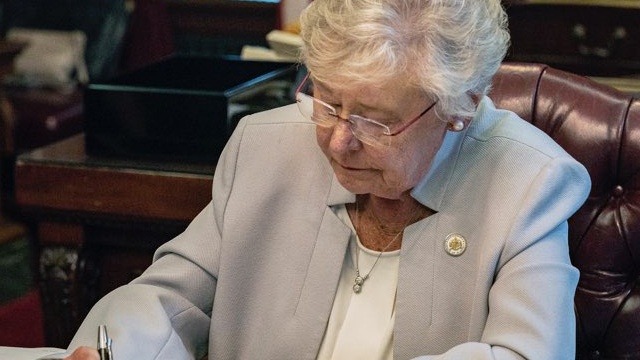Republican Alabama Governor Kay Ivey signed a bill into law on Monday that requires an individual convicted of a sex offense against a child under 13 to begin chemical castration a month before being released from prison.
Bill HB 379 was introduced by Alabama State Representative Steve Hurst. He told CBS42 that the bill will be for child rapists over the age of 21.
"They have marked this child for life and the punishment should fit the crime," said Hurst. "If we do something of this nature it would deter something like this happening again in Alabama and maybe reduce the numbers."
Chemical castration involves injecting medication that blocks testosterone production. According to CNN, the law will require these offenders to continue treatments until a court says the treatment is no longer necessary.
Offenders must pay for the treatment and they can't be denied parole on an inability to pay. If the offender chooses to stop receiving treatment, he will be in violation of parole and forced to return to police custody.
"This bill is a step toward protecting children in Alabama," Ivey said.
I’ve signed the last of the bills for the 2019 Legislative Session. We’re investing more in our infrastructure. We’re reforming our edu system. We’re taking steps to address our prison system. Our budgets, while still conservative, are moving AL forward. Our work has just begun! pic.twitter.com/6rtovHk3dv
— Governor Kay Ivey (@GovernorKayIvey) June 11, 2019
Critics say that the law might violate human rights.
Attorney Raymond Johnson told CBS affiliate WIAT-TV that offenders might challenge the law by claiming it is "cruel and unusual punishment" for someone who has served their time.
According to Randall Marshall, head of the ACLU of Alabama, it also implicates right to privacy.
"Forced medications are all concerns," Marshall told WSFA in an interview.
